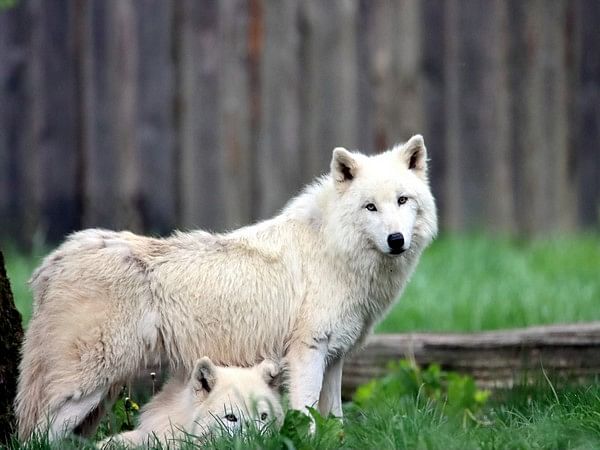Washington DC [US], September 14 (ANI): In a research involving many wolves and dogs, both animals did better at finding hidden food if they had previously watched the food being hidden by a person, implying that they remembered where the food was and did not rely simply on scent to discover it. Sebastian Vetter of the University of Veterinary Medicine Vienna, Austria, and colleagues published their findings in the open-access journal PLOS ONE.
Many species transmit important information through social learning, where one individual learns by observing or interacting with another. Prior research has suggested that wolves and dogs—who were domesticated from wolves—are capable of a form of social learning known as observational spatial memory, in which an individual can remember where another individual hid a cache of food and pilfer it. However, much remains to be learned about these abilities and how they may differ between wolves and dogs.
To shed new light, Vetter and colleagues conducted a study with 9 timber wolves and 8 mongrel dogs living at the Wolf Science Center in Ernsbrunn, Austria. They tested the ability of each animal to find 4, 6, or 8 caches of food, either after seeing a human hiding them or without the animal seeing the hiding.
The researchers found that both dogs and wolves found more of the first 5 food caches more quickly and with less distance travelled if they saw the food being hidden than if they did not see the hiding. This suggests that the animals did not just use scent in order to find the food, and it provides further support for the hypothesis that both kinds of animals are capable of observational spatial memory.
Whether or not they saw the food being hidden, wolves outperformed the dogs in finding the caches. The researchers suggest that this difference in performance may not be due to differing observational spatial memory abilities, but instead arises from differences in other traits, such as persistency and food-related motivation.
The authors add: “While domestication probably affected dogs’ willingness to adjust to humans, the results of the current study collaborate previous findings suggesting that cognitive abilities do not differ very much between dogs and wolves.” (ANI)
This report is auto-generated from ANI news service. ThePrint holds no responsibility for its content.



